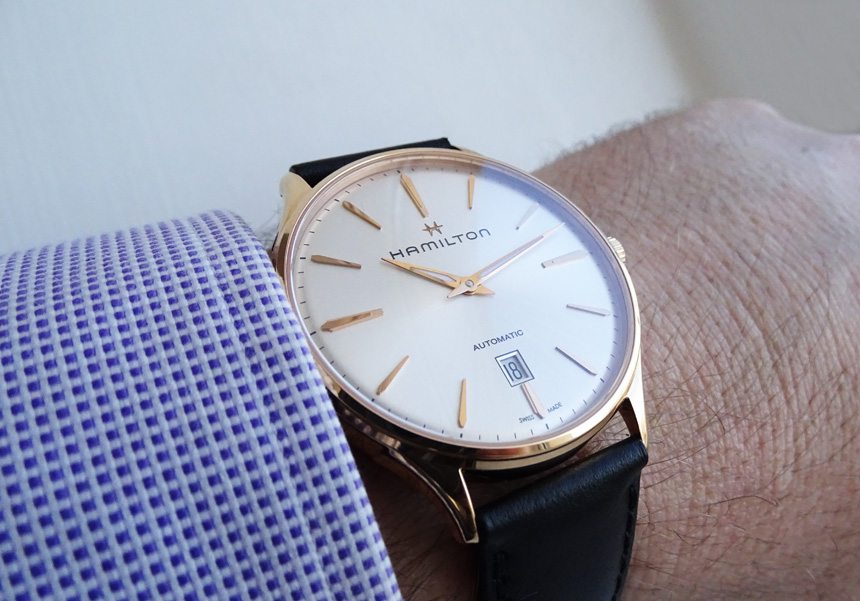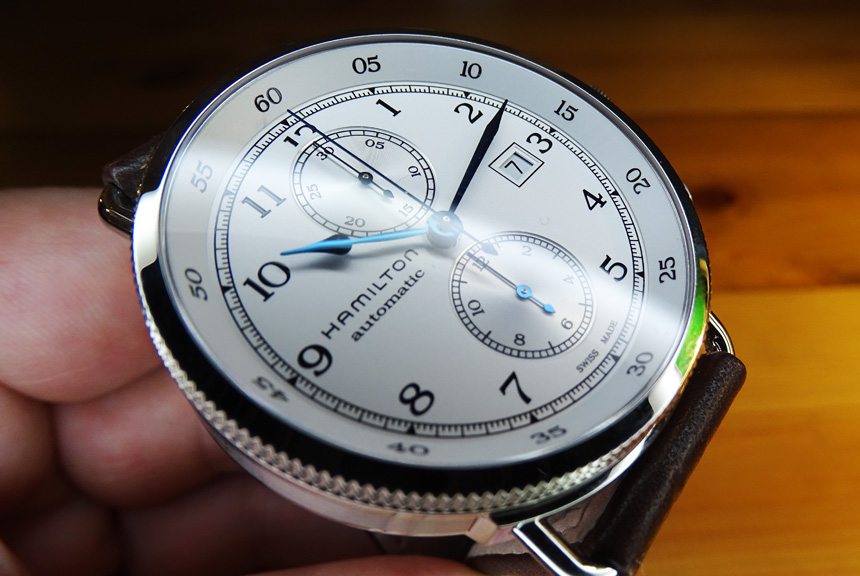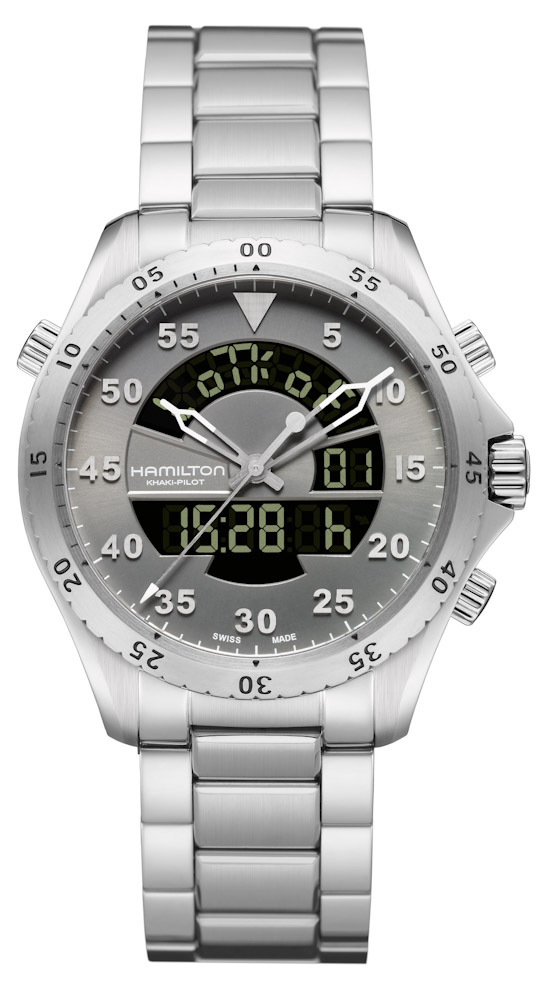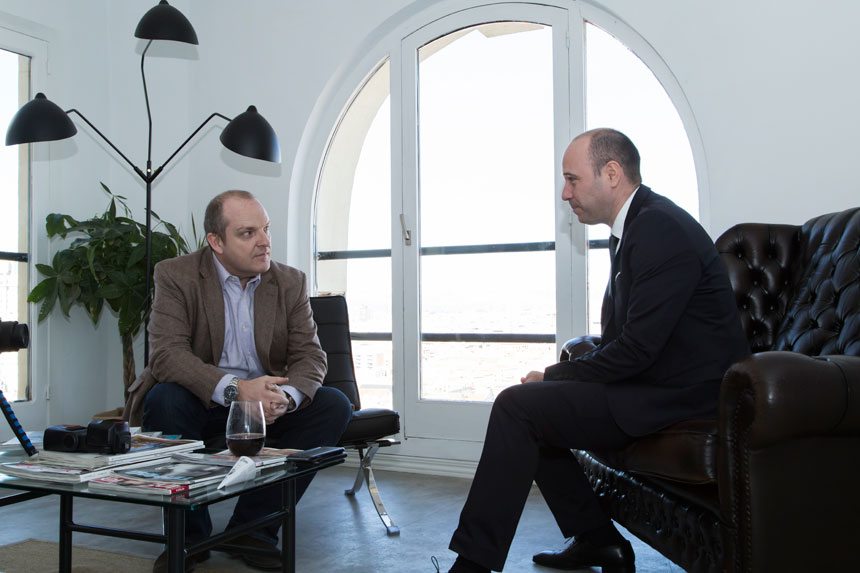 ABTW: There is a common saying in the market that the “limited edition” concept is just another marketing gimmick. What is your opinion on that?
ABTW: There is a common saying in the market that the “limited edition” concept is just another marketing gimmick. What is your opinion on that?
Sylvain Dolla: I would say that for some brands it might be a marketing tool, but for us it is just being reasonable: crazy ideas are great, but they do not sell by the tens of thousands. We have to be rationally crazy. And a limited edition can also be the source for future best sellers. The new gold watch, I love it so much I wouldn’t be surprised if in two or three Baselworlds you see a whole new collection based on this design.
ABTW: Connected watches. After a 2015 full of uncertainties, everybody is now thinking that smart watches can and will affect the quartz segment and not so much the mechanical watch market. If quartz watches generate around 27% of the sales of Swiss watches, then smart watches pose a real threat. Since TAG Heuer launched its connected watch and promoted it the way it did, smart watches now seem as legit as mechanical ones. To me it is a horrendously dishonest concept, but the truth is it is working for them, they are selling them well. Would you ever consider making a smart watch?

Sylvain Dolla: For us it is very clear. First, I’m not very enthusiastic about smart watches. I follow the market because I started in the Swatch Group on smart watches, the Swatch Paparazzi (the watch developed with Microsoft). So I could have pushed it on Hamilton, but we haven’t done it. First of all, our big success is with mechanical movements. People want to buy something that is not going to be obsolete in a couple of years. More than 80% of our sales are mechanical watches. These past years we have developed new movements and we will continue doing so, as you will see next year at Baselworld.
Having said that, we love technology. But whatever we may develop in the next years at Hamilton, it will remain a watch. A fine watch. It doesn’t mean it won’t integrate elements of intelligence or technologies, but it will remain a watch. And I will never make the compromise of integrating technology that will make a Hamilton watch obsolete in two years. That’s not what we are and that’s not what we need. I agree that in the €100 to €500 segment connectivity will be very important, but not in upper price markets. Yes, they will sell a lot at the beginning because it is cool, but afterwards… Look, prices are going down drastically, and smart watches seem to be working only on the very entry-level price point rather than at our price point.

Technology, we need it and we love it. But, again, watches. Not consumer electronics. I come from that market and don’t want to go back to it again because you are so focused on price that you lose all possible creativity.
ABTW: So, would you consider doing something along the lines of Montblanc’s E-Strap (that they apparently abandoned), for instance? But as soon as you incorporate electronics you have the obsolescence problem.
Sylvain Dolla: That’s why I said for Hamilton everything is watches. And if we integrate intelligence it is not at the price of obsolescence.
ABTW: For me, the best idea so far is the Swatch Bellamy because it is cheap and can reach the biggest consumer base: youngsters. I mean they cannot use a smart watch for their digital life because it is so intense; they need a phone to write, to take pictures to record videos… a smart watch is too small for that. But what do youngsters do? They consume. They buy stuff all the time, and for that, the Bellamy is perfect because it is cheap and it works in all the places they go to consume.

The smart watch debate has brought Sylvain to the edge of his seat. He is very vehement when he wants to make his point clear and moves his whole upper body to stress his points on this matter. But he never loses his smile.
Sylvain Dolla: True, and you don’t have to charge it. In Hamilton, as long as it is something that you don’t need to charge, we will do it.
ABTW: And would you consider selling your dials through iTunes or Google Play to be worn on smart watches?
Sylvain Dolla: I worked in the consumer electronics market, and I wanted out. I will not make the mistake of pushing Hamilton in that direction. It would be the biggest mistake. We may have technology coming to Hamilton at some point down the road, but it will be a watch. A fine watch.

